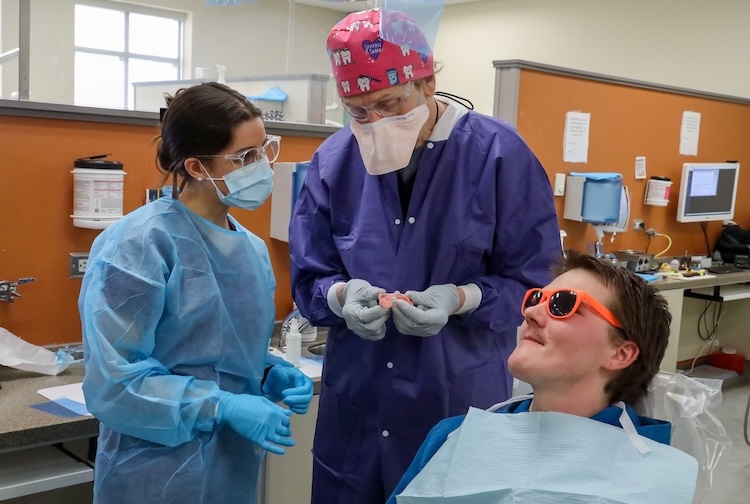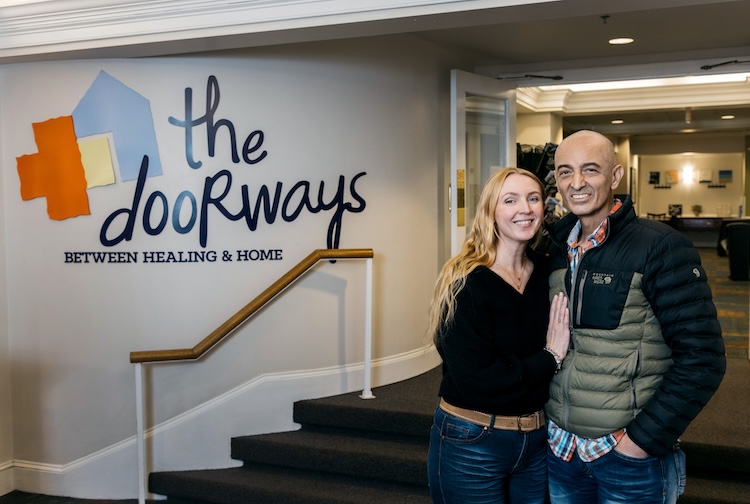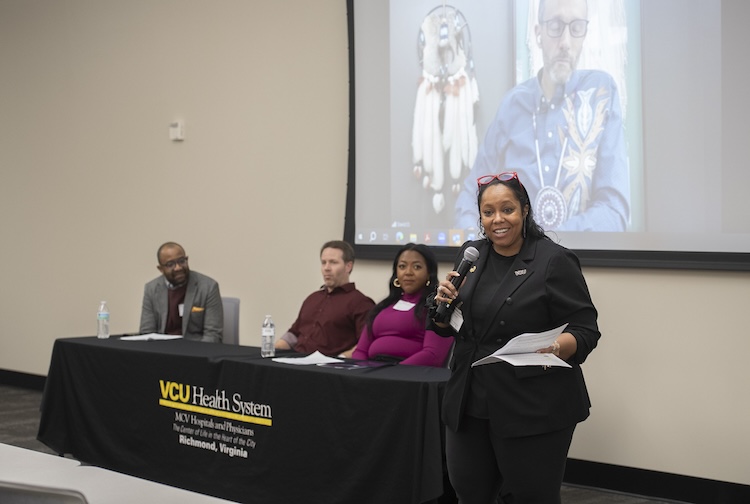
Deirdre Cooper Owens and Michelle Browder to deliver keynotes at first Racial Equity Symposium
September 16, 2022
By James Shea
Historian Deirdre Cooper Owens and artist Michelle Browder will deliver the keynote addresses at Virginia Commonwealth University’s first "History and Health: Racial Equity Symposium," organized by the Office of Health Equity on Sept. 21.
The symposium will examine historical and contemporary examples of interpersonal, institutional and structural racism in science and health care and will provide attendees with an understanding of how their experiences today are influenced by this history.
Deirdre Cooper Owens to address slavery and modern medicine
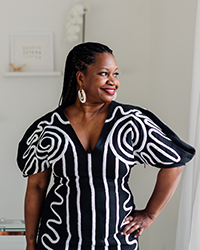
"As a historian who has always used my training and research to address contemporary concerns that affect women and people of African descent largely, I think it's critical to educate all Americans about our nation's past," Cooper Owens said. "Slavery made the United States a wealthy nation during its infancy and its reach impacted so many industries, including medicine."
Her talk will focus on slavery and the development of modern medicine. Cooper Owens will discuss the early founders of modern gynecology and use them to explore issues of structural racism and inequality in health care.
"One of the legacies of slavery is racism and unfortunately, there are voluminous studies that evidence how contemporary medical racism creates quality of life concerns that harm Black women, birthing people, their families and communities."
Cooper Owens hopes that symposium participants leave knowing more about the history of the U.S. and medicine and continue to apply context and care in their dealings with their patients who are members of racially minoritized groups.
Michelle Browder and the "Mothers of Gynecology"
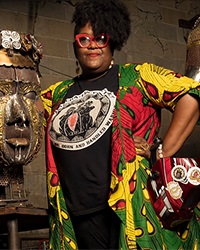
"It was the characters in the painting that struck me; their faces," Browder said. "It prompted me to look into it more deeply. So, I started doing my research."
Sims experimented on enslaved women in the early 1800s. He did not use anesthesia or have their consent. Browder said Sims perpetuated the myth that Black women do not experience pain and subjected the women to brutal treatments in the name of science.
A monument was erected in Montgomery to honor Sims in 1939, but Browder set out to publicize the true nature of Sims’ work. She has tried to educate people about Sims’ history and built a new monument in Montgomery to honor the enslaved women. The work is called “Mothers of Gynecology.”
"If you can do these types of experiments on Black women, then they are the true heroes of this narrative," Browder said. "They were able to endure this pain and suffering and savagery. I think their names should have been called out throughout history."
"We are thrilled to welcome Deirdre Cooper Owens and Michelle Browder as the keynote speakers for the inaugural Racial Equity symposium," said Logan Vetrovec, director of education and research for the Office of Health Equity. "Both speakers have an amazing wealth of knowledge and expertise that will provide us with lessons and opportunities to build more inclusive environments for our students, patients, staff and community members."
Besides the keynote addresses, participants can choose between two workshop tracks – The Intersection of Arts and Health Equity track and The History and Health Inequities track. For more information and to register for the event, click here.

